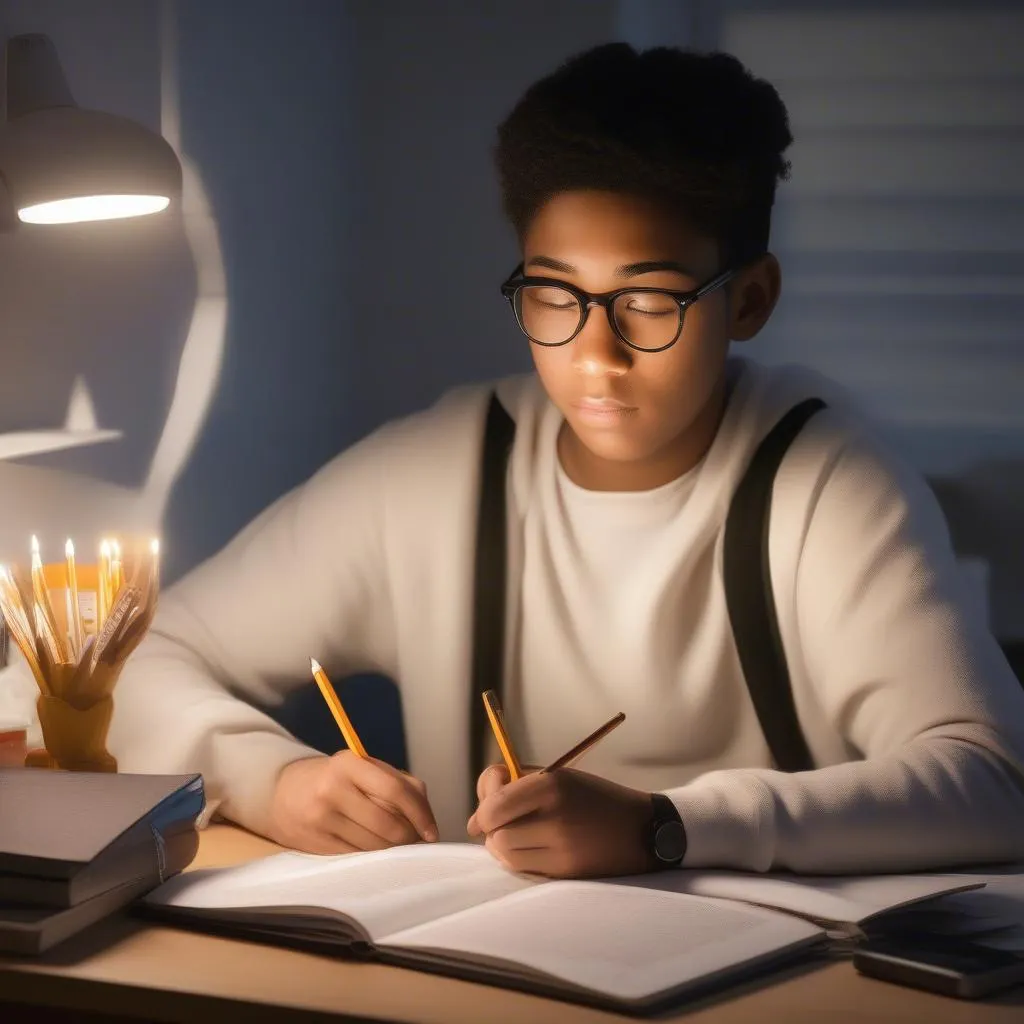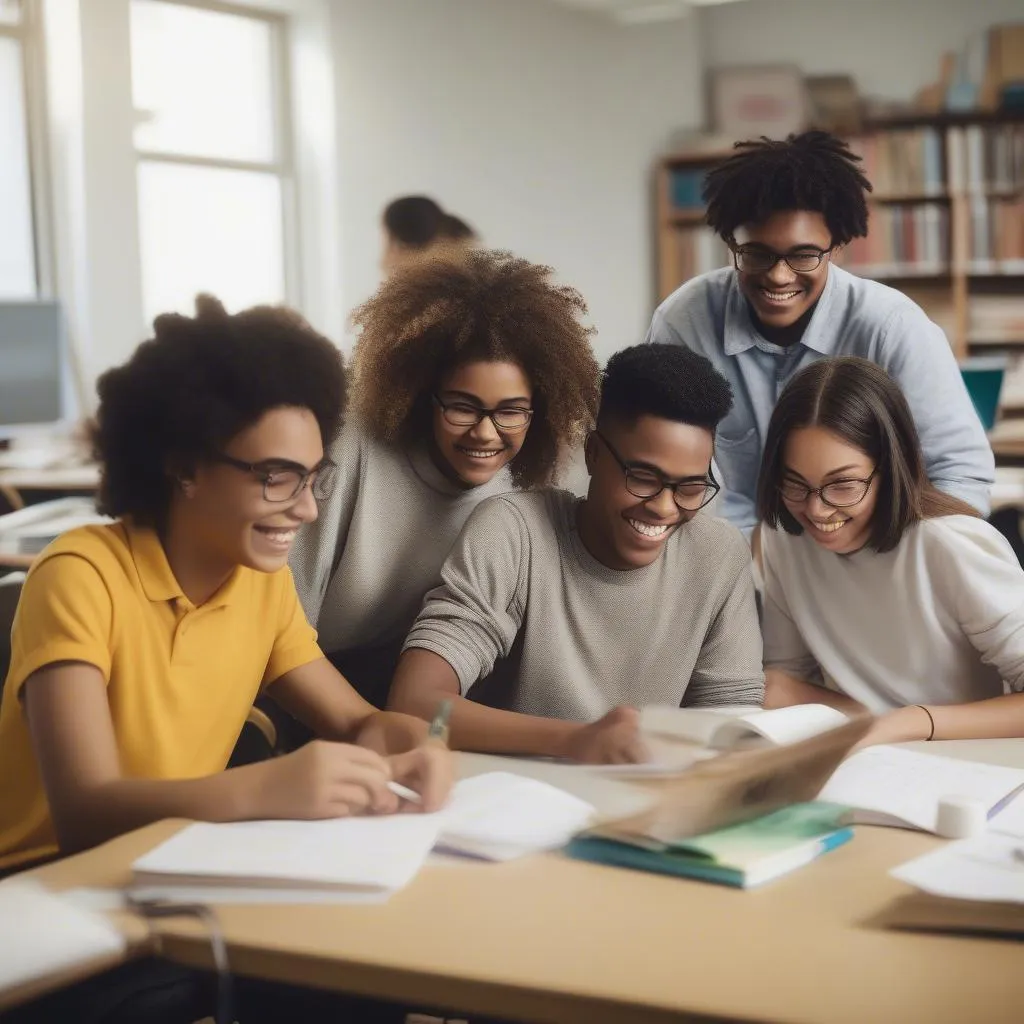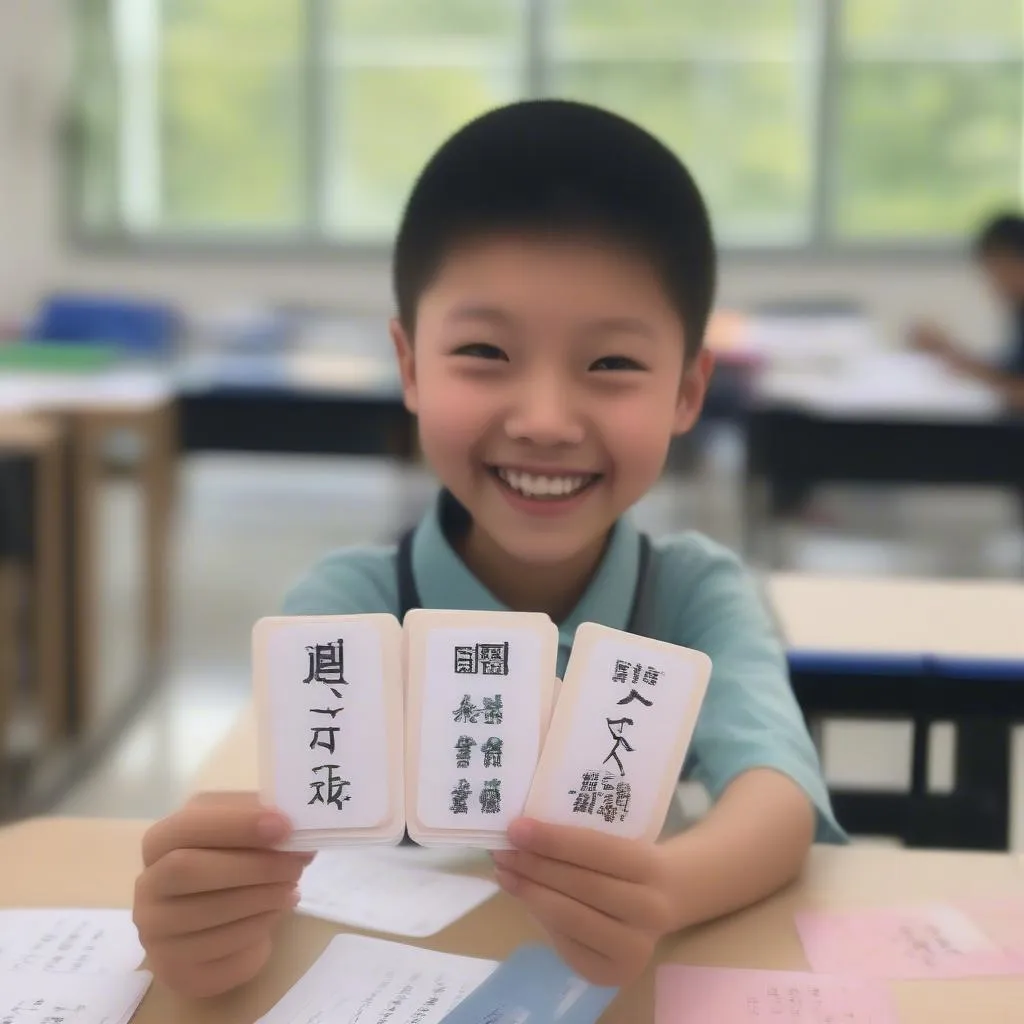“My dear, why do you study like a fish out of water? Every day you sit in class, your eyes are on the books, but your mind is somewhere else, you don’t remember anything.” – A familiar saying from many parents when their children are not studying effectively. Indeed, focusing on learning in class is not easy, especially when young people today are attracted to countless fascinating things outside.
How to Help Students Focus Better in Class?
Psychology and Health are Key Factors
“A dry tree is hard to bloom, a tired person is hard to focus,” this proverb contains a truth. When the body is tired and the spirit is not comfortable, focusing on studying becomes many times more difficult.
- Try putting yourself in the student’s shoes: When you are hungry, sleepy, or feel tired after a long day of activities, are you still alert enough to absorb knowledge? Definitely not!
- Reasonable nutrition: Breakfast is the most important meal, make sure students have enough energy to start the school day. Eat nutritious food, limit junk food and sugary drinks.
- Get enough sleep: Getting enough sleep helps the brain rest and restore energy, helping students be more alert and focused in class.
- Happy mood: When students feel happy and comfortable, and their spirits are high, their ability to concentrate also improves.
“Surely, I will be more focused when I feel interested in that subject. I will want to know more about that topic, I will want to understand the problem clearly.” – Dr. Nguyen Van A, Professor of Education, Vietnam National University, Hanoi.
Effective Study Skills
Learning is a marathon, not a sprint. Besides external factors, study skills play an important role in helping students focus better.
- Listen and take notes: Practice effective listening skills, focus on the teacher’s lectures, and take notes of key points and important ideas.
- Allocate time reasonably: Create a scientific study plan, allocate appropriate time for each subject, and avoid cramming and stress.
- Create effective study habits: Study regularly every day, each study session should not be too long, combined with diverse learning methods such as group study, learning through videos, games, etc.
- Eliminate distractions: Turn off your phone, close irrelevant websites, and find a quiet space to study.
“Students will be more focused when studying in a quiet, comfortable environment, not distracted by noise or external factors. Create an ideal study space for your child, such as a small corner in the bedroom, or a quiet table in the library.” – Dr. Le Thi B, Educational Psychologist, School Psychological Counseling Center.
Enhance Interaction
Learning is not just passively absorbing knowledge, but also a process of interaction, exchange, and sharing.
- Participate actively in class: Ask questions, discuss, share opinions, these things help students remember knowledge more deeply and create learning interest.
- Group study: Group study is an effective way for students to practice communication, cooperation, share knowledge, and encourage each other.
- Connect with teachers: Be proactive in communicating with teachers, asking questions, and discussing difficulties. Teachers will support and guide students.
“Students will learn more effectively when they are exposed to good, enthusiastic, and dedicated teachers who motivate and build confidence in students.” – Professor Nguyen Van C, Principal of Hanoi – Amsterdam High School for the Gifted.
Suggestions for Parents
“How can I make my child focus on studying?” – A question that many parents ponder.
- Create an ideal learning environment: A study space that is neat, clean, quiet, well-lit, and fully equipped with study tools.
- Always care and encourage: Create learning motivation for your child, encourage them to pursue their passions and goals, and share difficulties and challenges with them.
- Be by your child’s side on their learning journey: Ask your child about their studies, help them solve difficult problems, and create a sense of security and trust for them.
“Let’s set learning goals with your child, plan together, and monitor study progress together. Be your child’s companion and teacher on the path to conquering knowledge.” – Dr. Tran Thi D, School Psychologist, Hanoi – Amsterdam High School for the Gifted.
 Students studying effectively
Students studying effectively
Frequently Asked Questions About Helping Students Focus Better
“How to make students study consciously?”
- Create learning motivation: Find passion and learning goals, make students feel that studying is not a forced task but an exciting journey of knowledge discovery.
- Reward and encourage: Praise students’ progress, create motivation for them to strive and achieve higher results.
“My child is easily distracted when studying, how can I help them focus better?”
- Identify the cause: Distraction can be caused by many factors such as phones, games, noise, mood, etc. Help your child identify the cause and find a solution.
- Create good study habits: Train your child to develop a habit of studying regularly, focusing for short periods, and then resting and relaxing.
“How to make students study more effectively?”
- Apply study skills: Listen, take notes, ask questions, study in groups, use effective learning support tools, etc.
- Create proactive study habits: Encourage your child to explore, research, ask questions, and not just rely on knowledge from books.
Conclusion
Focusing on studying is a skill that needs to be practiced and developed. In addition to mastering knowledge, students need to practice effective study skills, manage time scientifically, build good study habits, create learning motivation, and always maintain a happy and comfortable mood.
Let’s accompany our children, share, encourage, and help them conquer the challenges in their journey to conquer knowledge.
Do you want to share your experiences and tips to help students focus better in class? Please leave your comments below. Thank you!
 Students in a study group
Students in a study group
